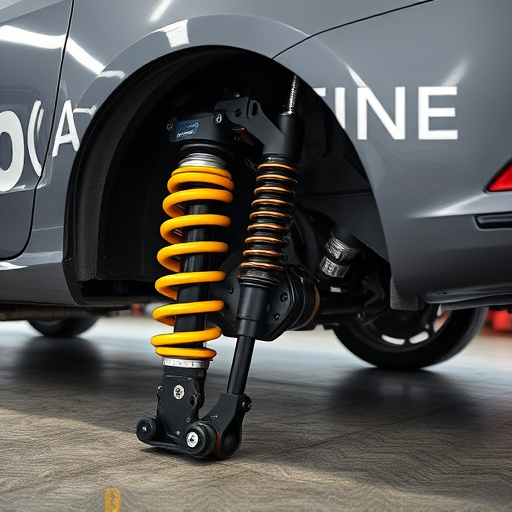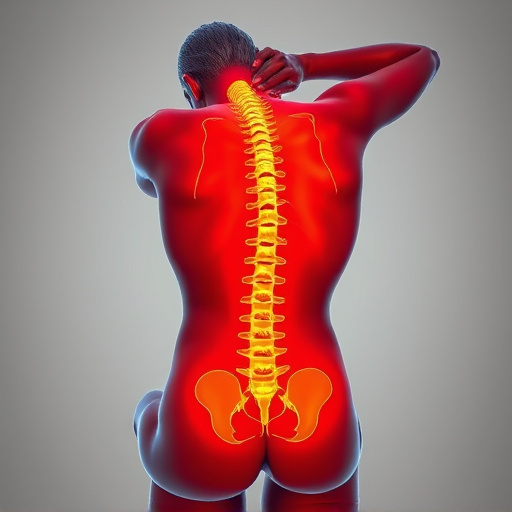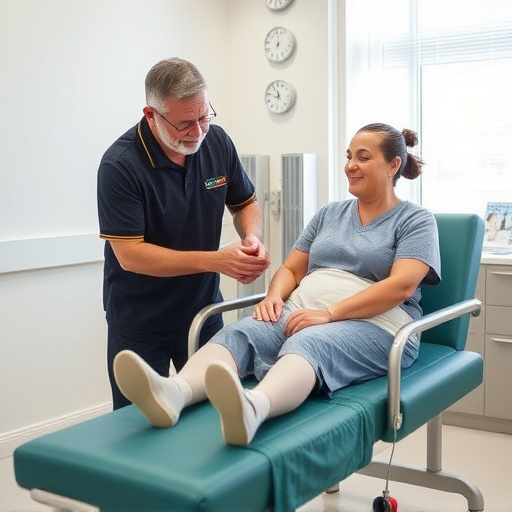TL;DR:
When preparing for a workers' compensation doctor's appointment, gather all relevant medical records, past reports, imaging results, and current medications. Note specific work tasks or incidents related to your injury. During the appointment, expect a thorough examination and discussion of symptoms. Bring assistive devices and clothing for easy access. Ask questions about diagnosis, treatment (like chiropractic care or shockwave therapy), and personalized plans. Clear communication is key for collaboration, faster recovery, and return to work. The doctor's role is to assess, manage, and guide rehabilitation for workplace injuries, aiming to restore functionality, alleviate pain, and enable a safe return to work.
Effective communication with your workers compensation doctor is crucial for a successful claim and a smooth recovery process. This guide offers practical tips to navigate appointments, ensuring you’re prepared and heard. From understanding the appointment’s purpose and gathering essential documents to clearly articulating your injuries and following up on treatments, these strategies empower you to actively participate in your care. By familiarizing yourself with the workers compensation doctor consultation, you can confidently manage your claim and secure the benefits you deserve.
- Preparing for Your Appointment: What to Expect and Bring
- – Understanding the purpose of the appointment
- – Gathering necessary documents and medical records
Preparing for Your Appointment: What to Expect and Bring
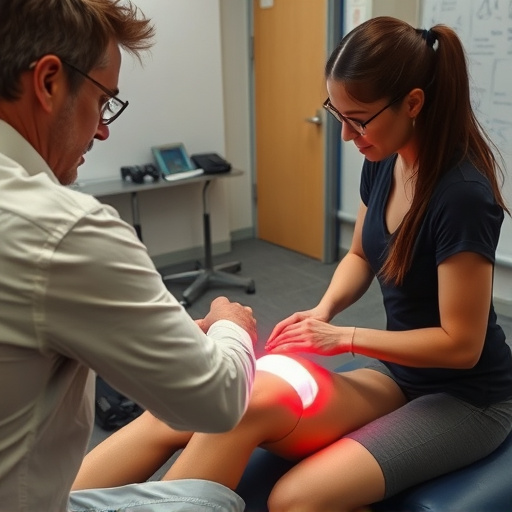
Before your meeting with a workers compensation doctor, it’s essential to prepare so that you can effectively communicate your injuries and needs. First, gather all relevant medical records, including previous reports from other healthcare providers, imaging results, and any prescription medications you are taking. This information will give your doctor a comprehensive view of your health history and current condition. Additionally, make note of the specific tasks or incidents at work that led to your injury; providing detailed accounts can aid in your claim’s processing.
At the appointment, expect a thorough examination and discussion about your symptoms. Bring along any assistive devices you use and clothing that allows easy access for evaluation. Don’t hesitate to ask questions throughout the process; understanding your diagnosis, treatment options like chiropractic care or shockwave therapy, and personalized treatment plans will ensure active participation in your healing journey. Remember, clear communication enhances collaboration with your workers compensation doctor, potentially expediting your recovery and return to work.
– Understanding the purpose of the appointment

When scheduling an appointment with a workers compensation doctor, it’s crucial to understand the purpose of this interaction. The primary goal is to assess and manage any injuries or conditions related to your workplace incident. These appointments are designed to facilitate recovery through proper care, which might include advanced pain management techniques tailored to your specific needs. By discussing your symptoms openly, you can collaborate with the doctor in developing personalized treatment plans that could encompass functional rehabilitation, promoting a safe return to work and improved overall well-being.
During these visits, actively participate by clearly articulating any concerns or issues. This open dialogue ensures your healthcare needs are addressed effectively. Remember, the workers compensation doctor’s role is not just to prescribe medication but also to guide you through a comprehensive rehabilitation process, focusing on restoring functionality and alleviating symptoms like pain, allowing you to regain control of your life post-injury.
– Gathering necessary documents and medical records
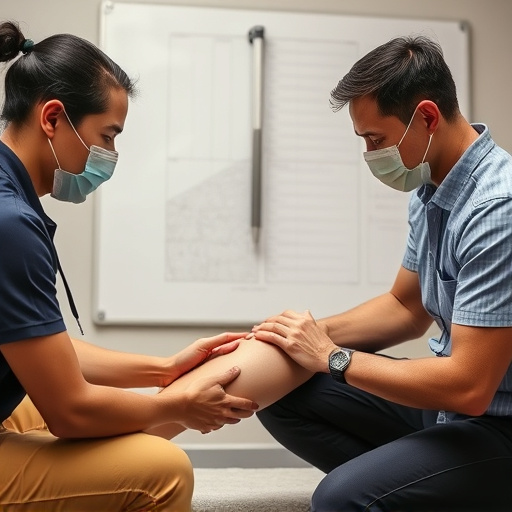
Before meeting with your workers compensation doctor, it’s crucial to gather all necessary documents and medical records. This includes your initial injury report, previous medical history, and any diagnostic tests or imaging results related to your current condition. Having these documents ready ensures a smooth and efficient consultation, allowing the doctor to focus on providing personalized treatment plans tailored to your specific needs.
By organizing your medical records, you facilitate a comprehensive assessment of your post-injury care. This is particularly important when dealing with complex issues like spinal adjustments, as the doctor can make informed decisions based on a complete understanding of your health history and current state. Ensure everything is up to date and accurately reflects your experiences and treatments thus far.
Effective communication with your workers compensation doctor is vital for a smooth claims process. By preparing thoroughly, bringing all relevant documents, and clearly articulating your injuries and concerns, you can ensure your case is managed efficiently. Remember to ask questions and actively participate in the consultation to navigate the complexities of workers’ compensation successfully.

